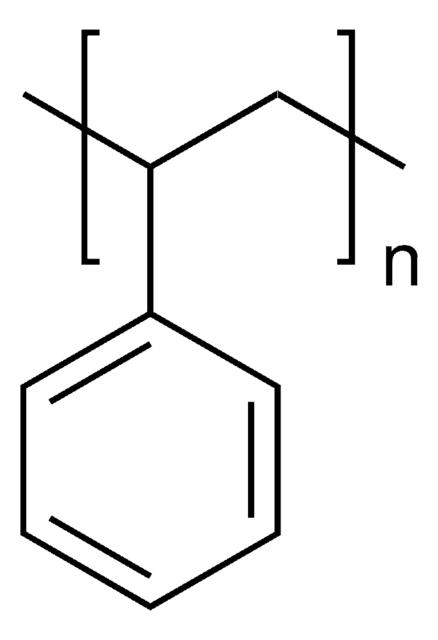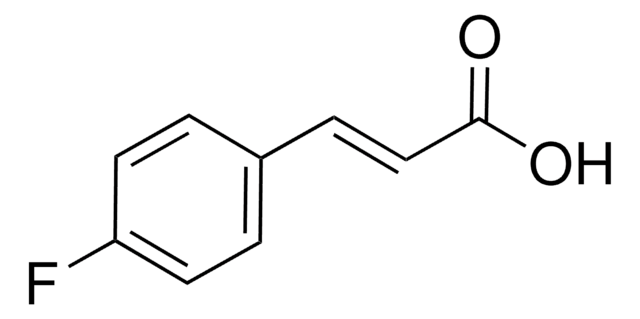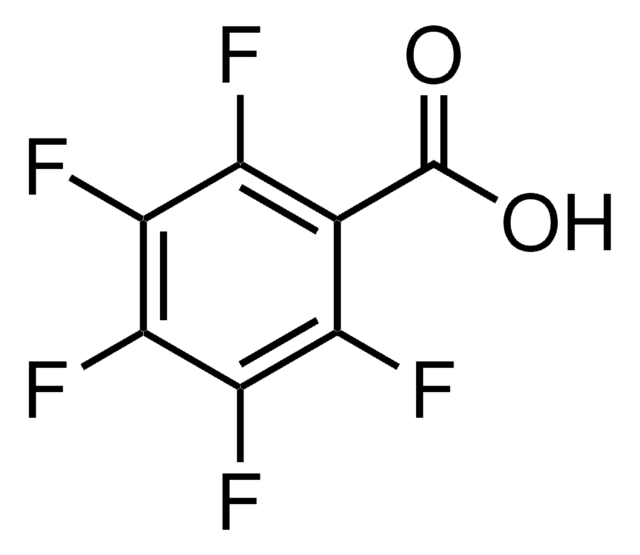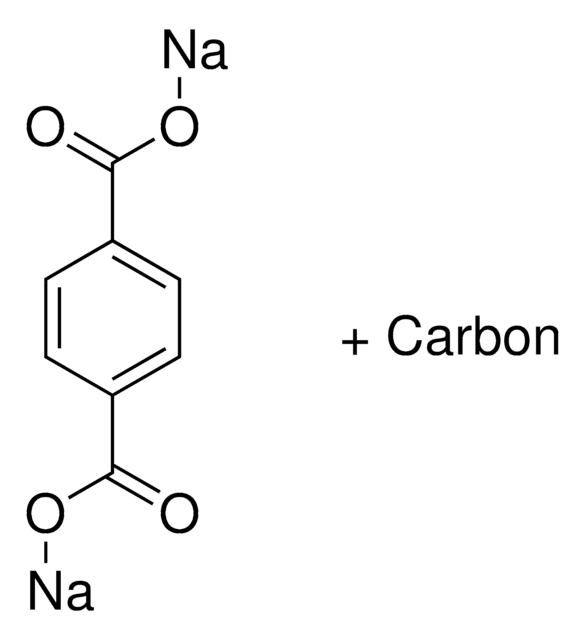38419
α-Cyano-2,3,4,5,6-pentafluorocinnamic acid
matrix substance for MALDI-MS, ≥95.0% (HPLC)
Sinónimos:
2-Cyano-3-(2,3,4,5,6-pentafluorophenyl)-2-propenoic acid, PentaFCCA
About This Item
Productos recomendados
grado
matrix substance for MALDI-MS
Nivel de calidad
Ensayo
≥95.0% (HPLC)
clases funcionales de analito
drugs of abuse, ionic liquids (quantification)
clases químicas de analitos
chlorinated lipids, lipids, peptides, phospholipids, phosphopeptides
técnicas
collision-induced dissociation MS/MS (CID-MS/MS): suitable
matrix-enhanced secondary ion MS (ME-SIMS): suitable
solubilidad
methanol: 100 mg/10 mL, clear, colorless to light yellow
idoneidad
suitable for matrix substance for MALDI-MS
cadena SMILES
OC(/C(C#N)=C/C1=C(F)C(F)=C(F)C(F)=C1F)=O
InChI
1S/C10H2F5NO2/c11-5-4(1-3(2-16)10(17)18)6(12)8(14)9(15)7(5)13/h1H,(H,17,18)/b3-1+
Clave InChI
LYNQRDIQUFMLTI-HNQUOIGGSA-N
¿Está buscando productos similares? Visita Guía de comparación de productos
Producto relacionado
Palabra de señalización
Warning
Frases de peligro
Clasificaciones de peligro
Acute Tox. 4 Dermal - Acute Tox. 4 Inhalation - Acute Tox. 4 Oral - Eye Irrit. 2 - Skin Irrit. 2 - STOT SE 3
Órganos de actuación
Respiratory system
Código de clase de almacenamiento
11 - Combustible Solids
Clase de riesgo para el agua (WGK)
WGK 3
Punto de inflamabilidad (°F)
Not applicable
Punto de inflamabilidad (°C)
Not applicable
Elija entre una de las versiones más recientes:
Certificados de análisis (COA)
It looks like we've run into a problem, but you can still download Certificates of Analysis from our Documentos section.
Si necesita más asistencia, póngase en contacto con Atención al cliente
¿Ya tiene este producto?
Encuentre la documentación para los productos que ha comprado recientemente en la Biblioteca de documentos.
Nuestro equipo de científicos tiene experiencia en todas las áreas de investigación: Ciencias de la vida, Ciencia de los materiales, Síntesis química, Cromatografía, Analítica y muchas otras.
Póngase en contacto con el Servicio técnico




![trans-2-[3-(4-tert-Butylphenyl)-2-methyl-2-propenylidene]malononitrile matrix substance for MALDI-MS, ≥99.0% (HPLC)](/deepweb/assets/sigmaaldrich/product/structures/249/587/f8021369-f65a-413d-887d-3c8a4d2a248f/640/f8021369-f65a-413d-887d-3c8a4d2a248f.png)



